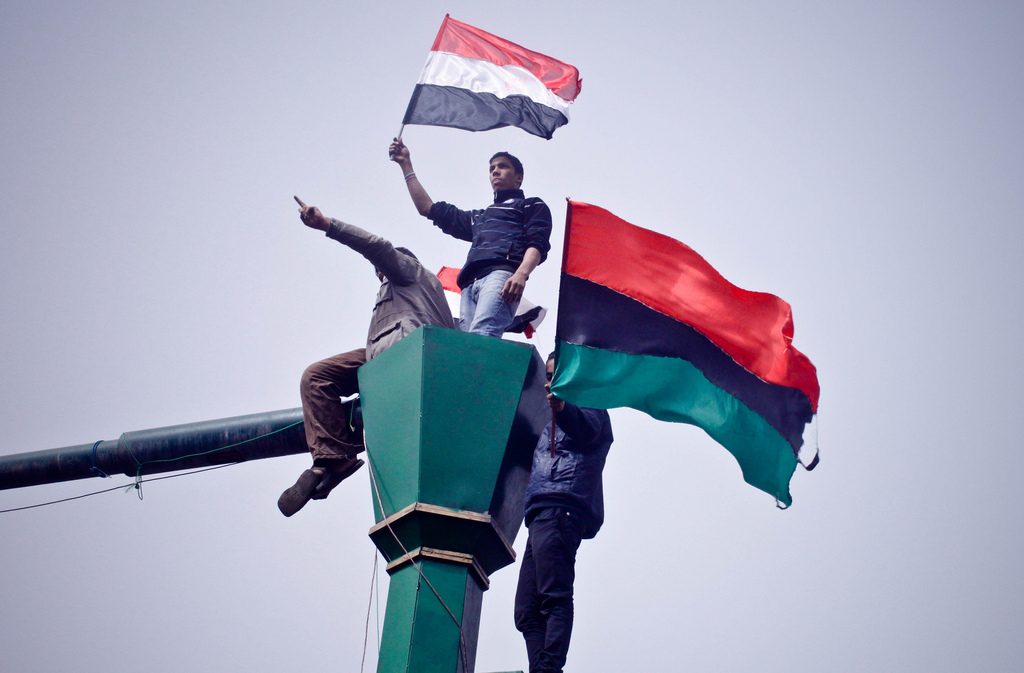
The rhetoric of the Arab spring and the democratization process, perhaps best paraphrased as “new government, new policies, new dynamics,” emphasizes respect for the rule of law and the maintenance of higher moral standards than those of the corrupt prior regimes. There are, nevertheless, many incidents that demonstrate that this rhetoric is not real, and which belie the stark contrast these new governments are trying to draw to separate themselves from their deposed predecessors. In particular, one recent episode involving Egypt and Libya demonstrates both lack of respect for the rule of law or these higher moral standards.
The Libyan government, headed by Prime Minister Ali Zidan, has been desperately searching for a popular cause to enhance its credibility among the Libyan people. The prosecution of members of the former regime exiled abroad has presented one such cause. In fact, so eager is the Libyan government to apprehend these individuals that they have, on more than one occasion, directly paid – with no public accountability of any sort – neighboring countries for extradition. In June 2012 the Libyan government (then the National Transition Council) paid Tunisia $200 million for the extradition of Former Libyan Prime Minister Baghdadi al-Mahmoudi. In January 2013 Libya paid Mauritania another $200 million for former spy chief Abdullah Senussi. Both individuals—as well as other regime members being held in Libya–have yet to see a lawyer, know the charges against them, or be brought before a court.
The vast majority of former regime members, however, have found refuge in Egypt, a country with a long history of guaranteeing safety to dissidents forced into exile because of their political ideas. Under Mubarak, Egypt granted refuge to Sudanese asylum seekers fleeing civil war, Iraqi refugees escaping the brutality of Saddam Hussein, and Syrians fleeing the Assad regime, to name just a few examples. Libyans under Qaddafi were no exception. In fact many Libyans currently in power were previously opposition figures who enjoyed protection from the Egyptian state.
Mubarak’s mutual understanding with his Libyan counterpart, Muammar Qaddafi, was relatively straightforward. The terms: Qaddafi would neither conduct nor support open attacks against the Egyptian regime or the Nile Basin countries, and in return, Egypt would pressure Qaddafi’s opponents to refrain from political activity against the Libyan regime. Egyptian diplomats would also act as intermediaries between hostile Western powers and the rogue regime of Colonel Qaddafi, particularly during the years of sanctions resulting from the Lockerbie attack. The one notable counterexample to the rule of Egyptian protection was Qaddafi’s former foreign affairs minister, Mansour al-Kikhia, who was kidnapped from Egypt under mysterious circumstances and delivered to Libya, where he was killed.
Despite this longstanding Egyptian tradition, the dubious case of the arrest of Qaddaf al-Dam, the cousin of Muammar Qaddafi and the most important member of his regime abroad, demonstrates a significant shift away from the principle of protecting political refugees. Curiously–or hypocritically, the shift is happening at the hands of a government that markets itself as more, rather than less, democratic than its predecessor.
The Libyans, since early 2012, have requested the extradition of a number of former members of the Qaddafi regime who settled in Egypt – using Interpol red notices; the same method used by Qaddafi to hunt his political opponents in the past on fabricated charges. The Egyptian government, in keeping with its tradition of asylum-giver, has stalled on these requests. The new democratic Libya then resorted to Qaddafi-like behavior, irritating Egypt with issues such as suddenly imposing stricter visa requirements for its citizens entering Libya, harassing Egyptians in Libya, and arresting a number of Egyptian Copts under preposterous accusations.
When none of these tactics produced results, the Libyan government resorted to outright bribery. Libya offered Egypt a 2 billion dollar interest-free loan for five years, and more recently on April 28, a 1.2 billion dollar interest-free credit line for oil. The cash strapped Morsi government, in a desperate bid to stem the free fall of Egypt’s haggard economy, ordered the arrest of Qaddaf al-Dam, and two lesser officials, former Libyan ambassador to Egypt Ali Marya, and former senior finance official Mohamed Ibrahim Mansour.
Witnesses report that Qaddaf al-Dam lived under the protection of Egyptian security agents, but when police tried to arrest him in the early morning of March 19, a firefight allegedly ensued. Police arrested al-Dam, confiscated light arms from his apartment, and detained him, while his two cohorts were arrested and shipped to Libya with little regard to due process or formal extradition procedures.
The deportation reveals an unsettling propensity for moral compromise. The governments on both sides are clearly appealing to populist sentiment to buttress waning credibility. For Morsi, his government requires an immediate cash infusion to stay afloat and avoid the wrath of an increasingly dissatisfied people; Zidan needs to boost popularity among Libyans, including restless militiamen, who vociferously demand the return of former regime members.
It is possible—and more than likely—that Egyptian security officials fabricated the story of the shootout in order to prevent the extradition of Qaddaf al-Dam. By alleging that Qaddaf al-Dam attacked Egyptian police, he would be required to undergo criminal procedures in Egypt, thus preventing his extradition. Whatever the motivation of security forces in preventing al-Dam’s extradition, this case reveals a moral deficit in the Morsi government, even in contrast to the previous authoritarian regime, with regards to policy allowing safe haven for political asylum seekers.
Though this particular case may be dismissed as being marginal, it nevertheless reveals that new states from the Arab spring revolutions tend to reflect old habits inherited from the previous regimes, and in the case of Egypt, reveal an even lower respect for moral integrity and rule of law.
Karim Mezran is a senior fellow at Atlantic Council’s Rafik Hariri Center for the Middle East.
Tarek Radwan is the associate director for research at the Atlantic Council’s Rafik Hariri Center for the Middle East
Photo: Maggie Osama
Image: Egypt%20Libya%20-%20Maggie%20Osama.jpg
